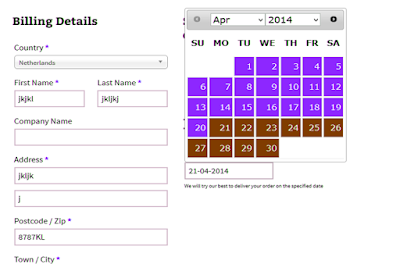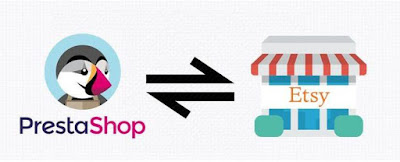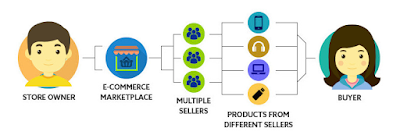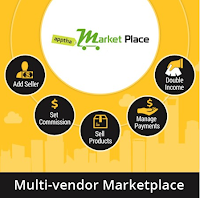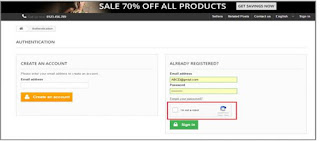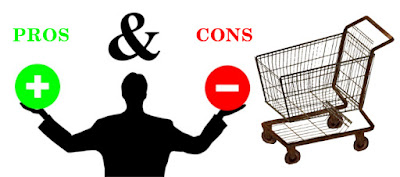Have you ever been hacked? If No, that’s great.
Have you ever been on an attack but saved the data breach? If yes, congrats because you are serious about keeping your customer data damn safe.
In today's scenario, it should not come as surprise if someone attempts a breaching into your customers' data. It has become pretty general nowadays considering that more than 9 billion customers data record have already been stolen by the hackers since 2013.
So, if you have ever been hacked or there has been a breach of your customer data, it's because you have not applied correct security measures to safeguard your customer data.
How would you safeguard yourselves?
Hackers with higher ambition would try to breach into the big names but the smart ones will mark the medium and small enterprises into their list. The small and medium enterprises generally leave a loophole in an attempt to save some cost, and that’s where the black hats get a chance to peek into the customer data.
If you want to secure your website and customers data from breaches, you can take a few simple steps like these to immune your site.
1. Use a secure social login plugin
Depending on your CMS, or eCommerce platform search, analyze, test, and implement a secure social login plugin for customer logins. Social login allows the customers and users to sign-up or login to your website using their social media account credentials.
The traditional account registration through emails addresses is not much liked by the users. Moreover, the email based registrations leave the customer data vulnerable to breaches and attacks since you are storing the account authentication information on your server.
By using social login you can easily eliminate this vulnerability as with this, customers don't need a dedicated email address and password to log in. They simply use their Facebook, Google, Twitter, or Instagram account to login.
The authentication data is just verified by your website, you don’t really store them on your server. That part is still safe on the social network account of the user. So, when you don’t even store the customer authentication data with you, how can someone steal it from you? Not possible. That’s why implementing a social login on your website is damn crucial.


Knowband offers the social login modules and plugins for Magento, PrestaShop, and OpenCart. It's a secure module that offers more than 14 social login options like Facebook, Google, Instagram, Twitter, Yahoo, and much more.
2. Host on cloud
Some of you might disagree with this point, as the cloud might not be able to serve best for the bigger enterprises. However, it is still the best way for small and medium sized businesses to host on the cloud. Microsoft Azure and AWS can be a good choice. In fact, the Azure Marketplace offers the hosting for almost every popular platform. Recently Microsoft has also partnered with PrestaShop for scalable cloud hosting and maintenance solutions.
Hosting on bigger cloud servers like Azure and AWS will secure your website with the high-end security these companies provide.
3. Encrypt your customer data
It doesn't matter if you have hosted on a private or a cloud server, hackers might eventually find a way to your customer data. In that case, the best way would be to encrypt your customers' data using high-end hashing algorithms. This encryption will ensure that no one else can decipher the data except the one who has the key.


In this way, even if someone even breaches into your customer data, they won't get anything useful except the gibberish and encrypted texts. Of course, you will have to keep your decryption key safe with you.
4. Use two step authentication
Two step authentication will add an extra layer of security to your customer login. The customers after entering the correct credentials will be asked to provide a temporary One time password sent to their mobile number for logging into their user account on your website.
By using this authentication process on your site you can ensure a safe vault for the customer data. Even if someone is smart enough to bypass the first step authentication of email and password, he won't be able to log in until the second step verification is done. As the access to the second step authentication data will be with the original user, it's not possible for the black hat to breach into the account.
A similar two step verification is also used by the Google for securing the Gmail accounts.
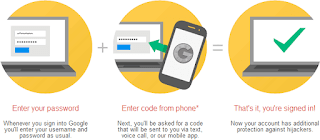

5. Don’t give full access to every employee and don’t encourage BYOD
The biggest loopholes are created from within the organization. I am not pointing that there is a mole in your organization, but even a small mistake by your employees can put your customers' data at risk. To prevent such vulnerability, it best if you allow only a limited access to your employees according to the job they perform. Provide the access to the customer data to only the limited people whose tasks are associated with the customer information. The lesser the access to the customer data the more it is secured against breaches due to mistakes.
BYOD or Bring Your Own Device culture can be great for the convenience of your employees but not for the security of your customer data and other crucial data. It's best to use the company's hardware for all the organization's related work. If employees are allowed to use their own hardware, it obvious their system will have crucial data and information stored on them. Just imagine what could happen to the data if any of such systems get lost? Moreover, it is also not ensured that employees' private device is well secured with latest updates and anti-virus protection. It's best to give them the well-secured company's hardware and do not allow them to do any office work on any other private system.
Final thoughts
It's a simple list of simple ways to achieve a great security of your customers' data. You can realize these tips without facing any hard time. Just the straight forward cautions to get serious security. Finally, you must understand the importance of safeguarding your customers' information, it's no more an option but a necessity. Sooner you realize, better it is for your business.




